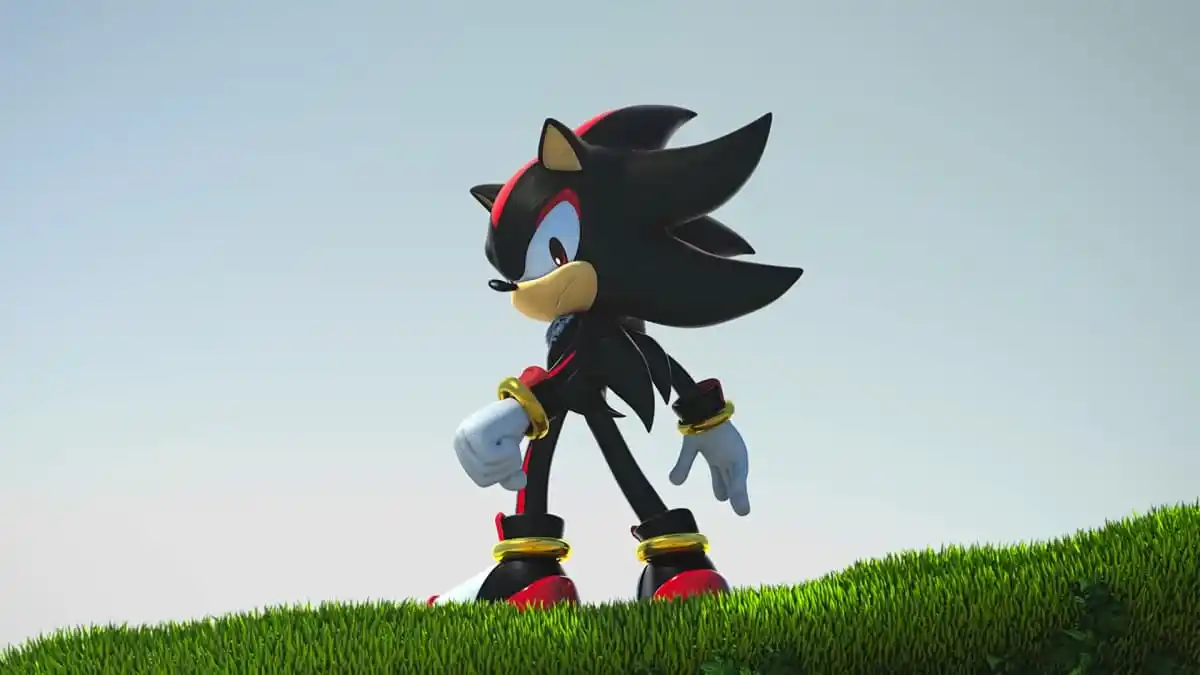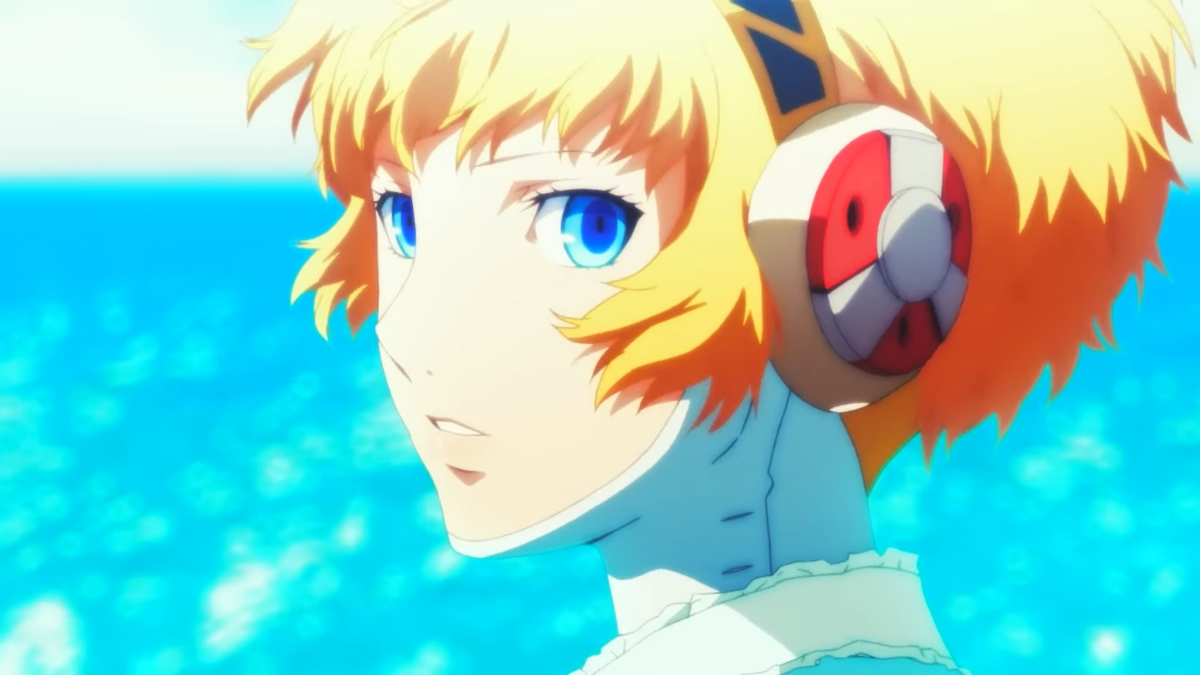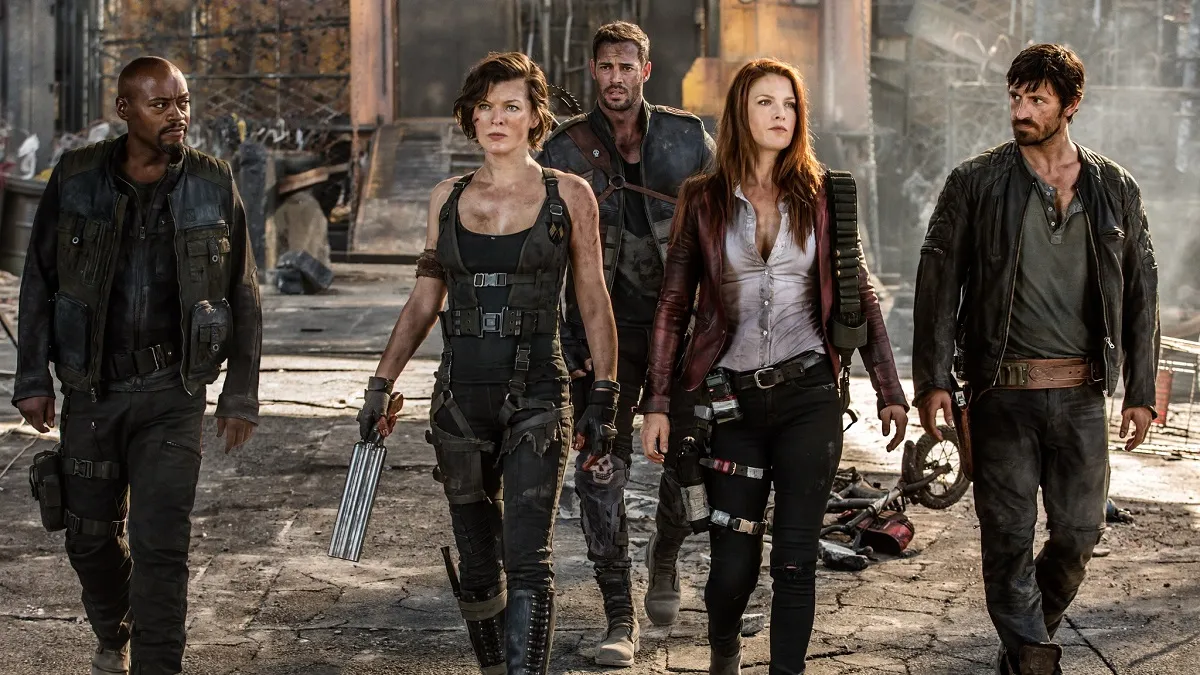[Editor’s Note: We’re not just a (rad) news site — we also publish opinions/editorials from our community & employees like this one, though be aware that it may not jive with the opinions of Destructoid as a whole, or how our moms raised us. Want to post your own article in response? Publish it now on our community blogs.]
There’s been plenty of talk about the Citizen Kane of gaming, as “experts” attempt to validate and justify the medium of games by comparing it to a classic movie in increasingly tenuous and bizarre ways. Most of these Kane comparisons are totally off-base and usually make the “experts” in question look silly.
When you try and compare one medium to another, you always run the risk of making yourself appear ludicrous in the process, but I feel that one link can be made between a certain game franchise and a certain movie franchise. It’s not Citizen Kane, but a series of films with its own iconic and undeniable impact on human culture.
If you really must hold up a videogame and say “this is like a movie,” then I believe I have found the perfect one. Instead of linking Metroid Prime and Citizen Kane, try Final Fantasy and Star Wars. I think you’ll find that the similarities between the two are quite astounding.

In very much the same way as Star Wars, Final Fantasy has established a huge legacy as one of the most significant and important properties of its medium. Whether you agree upon the quality of either series or not, the cultural impact they have made cannot be debated. I’m not a huge fan of Star Wars myself, but I can recognize its importance, and its pervasive influence on countless films that have appeared in its wake.
Just as Star Wars influenced dozens, perhaps hundreds of films over the years, the influence of Final Fantasy can be seen everywhere. Final Fantasy popularized the RPG genre for thousands of gamers, especially in the West, where such games had rarely been seen. Very much like Star Wars, Final Fantasy introduced many new concepts, helping to shape the future of RPGs in the same way that Star Wars shaped the future of science fiction.
Final Fantasy introduced gamers to side-perspective battles as opposed to the formerly traditional first-person RPG fights. Final Fantasy II introduced gamers to sequels set on entirely different worlds with entirely different characters. Final Fantasy VII introduced a whole new generation of console gamers with an epic PSOne experience that won millions of fresh fans. Before Final Fantasy, most games were narratively shallow affairs, with mascots whose sole job was to jump around and look cool. Final Fantasy slowly introduced us to deeper and more complex stories in games. Yours truly can proudly count Final Fantasy VII as the game that acquainted him with the concept of videogames as potentially superior narrative devices.

Final Fantasy did with games what Star Wars did with movies. Before Star Wars, movies were generally one-shot titles that had to appeal to all ages. Star Wars popularized the idea of the “franchise” movie, where a story is told over more than one film. Star Wars pushed forward the use of special effects, which up until the creation of Episode VI were little more than bells and whistles to be played with rather than taken seriously. Star Wars took stereo sound into movie theaters, where once there was only monaural sound.
Both Final Fantasy and Star Wars helped to revolutionize and popularize their respective mediums, and turned the genres to which they belonged into popular and respected ones. They also both inspired countless knock-offs, as movies and games tried to follow in their wake. So many sci-fi films take their cues from Star Wars, while there are now too many JRPGs on the market to name, all thanks to Final Fantasy‘s immeasurable popularity.
This popularity-driven imitation can also be seen in the thousands of parodies that both franchises have inspired. Cultural references to both Final Fantasy and Star Wars are found in TV shows, movies, videogames, and endless streams of Internet cartoons and comics. Both properties are so easy to parody because they became so recognizable. Light sabers and Darth Vader helmets are instantly known to the general public, making them easy to spoof, just as Buster Swords and Chocobos can be spotted a mile away.
Which brings me to the iconic nature of the two franchises. When you see Star Wars, you know it’s Star Wars. The design, the art direction, and the many well-known characters are unmistakable. Darth Vader is an entire cultural phenomenon in and of himself. The famous helmet design, the classic mechanical breathing, the brilliant vocal performance of James Earl Jones and the unforgettable scenes in which he appears have turned Darth Vader into a worldwide brand that very few people would be unable to recognize. Arguably, Final Fantasy has its own Darth Vader in Sephiroth. Again, the famous look, the oversized sword, the endless memorable quotes and the sinister tolling of a bell to mark his presence have become ingrained into popular culture. Sure, Sephiroth is nowhere near as popular as Darth Vader in a mainstream sense, but he is definitely iconic, and has become popularized in very much the same manner as the Dark Lord of the Sith.

This iconicism doesn’t just stop at the characters and aesthetics. Even the sounds have become so pounded into our collective subconscious that we instantly know what we’re hearing when we hear it. For Star Wars, we have the buzzing of a lightsaber or the screeching of a TIE Fighter. For Final Fantasy, the chiming of a menu screen or the chirping of a Chocobo. You just have to hear these things and you know where they came from and what they mean. Same goes for the music as well. While Star Wars has its famous epic theme, Final Fantasy has the beautiful Crystal theme. While Star Wars has the Imperial March, Final Fantasy has One Winged Angel.
The comparisons can also be drawn with the respective fanbase of each franchise. Star Wars nerds and Final Fantasy geeks are among the most rabid. You just have to do a quick Google search to find dozens of obsessives dressed up as Luke Skywalker or Cloud Strife. Scope out the endless fan sites and online communities, and for a really good idea of how loyal a fanbase these franchises have, you can check out the madness that heralds the launch of a new Star Wars movie or Final Fantasy game. In Japan especially, the recent launch of Final Fantasy XIII has been just as hyped and media blitzed as the last big Star Wars film.
New installments to these franchises aren’t just sequels or spin-offs — they’re events. Both Star Wars and Final Fantasy have managed to transcend the idea of a popular game release and become something you mark on a calender.
However, for all the positives, there are negatives as well. For if Final Fantasy is gaming’s Star Wars, Square Enix is cinema’s George Lucas. The similarities between the two properties run so deep that we can even draw similarities between the way in which both of them have been whored out and had their legacy stretched to breaking point by those that gave them life in the first place. The biggest example of this is Final Fantasy VII, and how it can be compared to the horribly ill-adviced prequels that George Lucas embarked upon.

Just as the original Star Wars trilogy was a self-contained story that never needed further explanation, so too was Final Fantasy VII a perfect, bubble-enveloped experience that asked for no expansion. Yet both were subject to unnessecary follow-ups that did little more than damage the vision of the original creation. The “Celebration of Final Fantasy VII” systematically destroyed the magic of the classic 1998 RPG, starting with a movie sequel that could be viewed at best as a glorified anime, and ending with not one, but at least three prequels across various mediums and platforms that did what George Lucas is so fond of doing — over-explaining everything to the point where nothing is left to the audience’s imagination, and all the mystery of the original has been totally sucked out to satisfy the ego of the creator.
Both franchises have been thoroughly whored out, with a ludicrous amount of spin-off titles and merchandising that have helped Star Wars and Final Fantasy become some of the biggest cash cows in entertainment history. George Lucas ham-fistedly dragged as much mileage as he could out of his one half-decent idea, and Square Enix has done exactly the same. Even Final Fantasy XIII is planned to be not one, but three games, with a PS3 exclusive called Versus and a PSP game called Agito in development as part of the Fabula Nova Crystallis movement.
In terms of spin-offs, we can connect Star Wars: The Clone Wars with Final Fantasy: Crystal Chronicles. Both Star Wars and Final Fantasy have their accompanying “extra” sagas, aimed at children, and lapped up by the truly hardcore. There are also the crap little cartoons and specials that were destined to fail, such as the Ewoks cartoon and its Square Enix counterpart, Final Fantasy Unlimited.

Unlike the loose connections made between Citizen Kane and any other number of videogames, it seems that Star Wars and Final Fantasy can be contrasted surprisingly well. Commercially, creatively and culturally, this movie and this game are incredibly similar, and the parallels are evident, plain and numerous. We could likely delve even deeper than this and truly extrapolate on the idea, but that could easily take up 150,000 words and nobody reads a blog for such huge, long-winded analysis.
Does gaming have a Citizen Kane? Unlikely, at this stage. It does have a Star Wars, however, in more ways than one, and for both good and bad reasons. Next time someone needs to make a movie comparison to satisfy their need for videogame justification, at least here’s one example that actually works for a change.
And no, Halo would not have been a better example.




